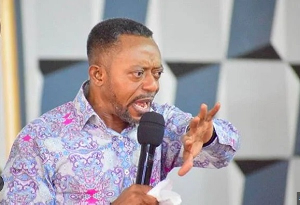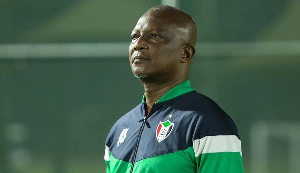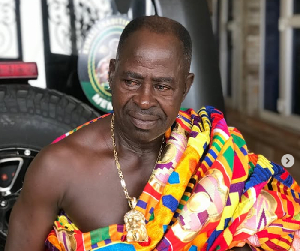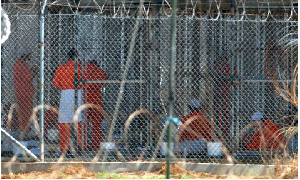It is said, “A journey of one thousand miles begins with a step” and that is true about the forty-eight-year journey of the Pentecost Bible School that has morphed into a full-fledged Pentecost University this year when it received its presidential charter to operate as an autonomous university.
A brief ceremony was organised on Thursday, May 28, 2020 at the Jubilee House in Accra, during which President Nana Addo-Dankwa Akuffo Addo presented to the Rector of Pentecost University College (PUC), Apostle Dr. Daniel Okyere Walker, the presidential charter that granted autonomy to PUC to run programmes and award its own degrees, diplomas, and certificates in accordance with the laws of Ghana. PUC will henceforth be known as Pentecost University (PU).
What would the Presidential Charter do for The Pentecost University?
The mode of granting charter for an institution to operate as a full-fledged university depends largely on the national policy on education of a particular country. In some countries, regional, provincial, or state governors can, by law, grant a university charter within their jurisdiction, but in Ghana it is the prerogative of the president of the Republic or his representative to grant a charter under the Tertiary Institutions (Establishment and Accreditation) Regulations, 2010, LI 1984. In most cases, newly established universities, particularly private universities are required by this law to operate in affiliation to a chartered university for mentorship until the private university meets all requirements stipulated by law before it can be granted charter.
Thus, in Ghana, university charter is granted when there is enough evidence that the institution has satisfied all the requirements of academic excellence set out by the National Accreditation Board (NAB), together with related institutions under the Ministry of Education. Once the charter is granted, the university is transitioned into an autonomous institution with the capacity to award its own degrees in conformity with the laws of Ghana.
The historical trajectory of the journey to the Pentecost University
Charting the historical trajectory of the university has become necessary in this article for our present generation to be abreast of the various developments that have taken place regarding the Church’s quest for higher academic excellence. Seven stages have, therefore, been identified in the historical developments of the journey that has birthed the Pentecost University.
Pentecost Bible School (PBS), Kumasi
Pentecost Bible School was started at the Church’s premises at Asokwa, Kumasi, in 1972 by Pastor David Mills, a missionary of Elim Pentecostal Churches in the UK with the approval of the Executive Council of the Church. Mills was then the pastor of Kwadaso District of The Church of Pentecost (CoP) while also serving as the principal and the only lecturer of the School. Later, the school’s operation was put on hold for some years until it was moved to Accra in 1982. The duration of the entire course was one month. The first batch of students were Apostles J.K. Ennin, B.K. Arthur, and Onyame Tsease. The rest were Evangelist M.T. Wayoe, Pastors S.K. Ayinor, Yaw Frimpong, S.A.K. Karikari, R.K. Amponsah, John Mensah, J.K. Atsu, A.K.P. Quaye, S.K. Nketiah, Samuel Opoku Adipah, R.N. Otumfour, J.Y. Tieku, and Owusu Ankamah.
According to Apostle J.K. Ennin, they were 16 students, all of whom were already serving in the full-time ministry of the Church before attending the course. Some of them were overseers while others were ordained pastors of the Church. We should, however, note that the School was known as, “Bible School” without the name “Pentecost” added to it. It is for the purposes of clarity that the word “Pentecost” has been added to the name of the School in its references to both Kumasi and New Abossey Okai campuses.
Pentecost Bible School (PBS), New Abossey Okai, Accra
In 1982 during the last Council Meeting of the CoP under the leadership of Pastor James McKeown, the Executive Council decided to reopen the Pentecost Bible School in Accra. The School operated in a rented building of one Elder Boateng at New Abossey Okai. PBS opened in May 1982 and ran for more than a year before it was moved to Madina. It must be noted that, Pastor David Mills was the Principal of the School at New Abossey Okai, and was also the only lecturer. While at New Abossey Okai, PBS ran three months refresher courses for persons who were already serving as ministers of the Church; some of them had already studied at its Kumasi campus. Among those who studied at New Abossey Okai campus were Apostles (Professor) Opoku Onyinah, B.K. Swanzy (course prefect), G.K. Narh, Blessed Bonney, Dr. S.K. Baidoo, Robert Acquaah, Rene Coco (Benin), Alex Osei Bonsu, Prophets J.E. Ameyaw, and E. Appiah Agyekum. Others were Pastors D.K. Essien, S.K. Annor, Andrews Tetteh, D.T. Okyere, E. Asante, J.K. Appiah, F.K. Larbi, and C. Osei Danquah
According to Apostle G.K. Narh, they were supposed to study for three months but due to the 1983 famine in Ghana, they did only one month from 3rd to 28th October, 1983 and returned to their stations. Apostle Professor Opoku Onyinah said that they were not the first batch of students at the New Abossey Okai campus. A circular dated December 6, 1982, indicates that they were the third batch of students (or senior pastors who had not attended Bible school) to be trained in 1983. There were, however, overseers among them: Apostle Peter Ayerakwa, Pastors S.K. Antwi, I.K. Domfe, K.M. Kutin-Buah, and J.A. Boateng. The number of students in a class was not supposed to exceed 20 at a goal for convenience sake. The fourth session in that same year was meant for apostles and prophets only. The Church’s records show that some ministers were trained on the same campus in 1982 but their names were not available to be featured in this article.
Pentecost Bible Centre (PBC), Madina, Accra
The Church moved the School from New Abossey Okai to Madina in 1984, the current location of Pentecost Hospital. In April 1984, the School was renamed Pentecost Bible Centre, with Pastor Lionel Currie as the principal. Prophet M.K. Yeboah was appointed as the dean of students and assumed office on 1st September, 1984. Pastor David Mills started with the first batch of PBC for about one month as the acting principal because Pastor Currie had not officially assumed office as the substantive principal. Notably among the students who studied at Madina were: Apostles Dr. M.K. Ntumy (Dinning hall prefect), Dr. Alfred Koduah (class secretary), Emmanuel Achim Gyimah, M.O. Andoh, Narh Affum, Samuel Antwi, Emmanuel Kwame Appiah, S.K. Mensah, and Prophet Appiah Kubi. The rest were Pastors J.Y. Acquah, B.B. Baiden, John Koomson, Asare Konadu, Owusu Boreh, K.O. Amponsah, D.W.J. Jimattey, John Okyere, Robert Taylor, S.P. Nartey, Asare Nyame Erique (Ivory Coast), and Prince Maglo. They were 21 new entrants, together with Pastor F.K. Amfo (course prefect), who was already serving in the full-time ministry for two years. Brother Michael Badu (now pastor) was their caterer. The duration of the course was three months.
Pastor John Waller, another missionary of the Elim Pentecostal Churches, UK, succeeded Pastor Lionel Currie as the principal of PBC, Madina in 1992. Apostles S.O. Asante, Nicholas Siaw, S.K. Asomaning, Sowatcher Bruno (Togo), Jones Awuah Afrifa, Prophets David Kankam Beditor, E.K. Appiah, Pastors E. K. Aidoo, Victor Asamoah, John Anamang, S.R. Essel, and W.W. Asamoah, were among the first ministerial students who studied at PBC under the leadership of Pastor Waller in 1993. Pastor Dr. Amponsah Kufour served as the Director of Studies with Pastor Opoku Adipah as the Dean of Students of the school. They were 31 students.
Pentecost Bible Institute (PBI), Sowutuom, Accra
In 1997, the Pentecost Bible Centre was relocated to Sowutuom, the current location of The Pentecost University and adopted the name, Pentecost Bible Institute (PBI). Pastor John Waller, another missionary of the Elim Pentecostal Churches, UK, was the first principal at the School’s campus at Sowutuom. Pastor Opoku Adipah was appointed the first dean of students with Rev. Dr. Amponsah Kuffour as the Director of Studies. Some of the first batch of students at PBI were Apostles Nii Kotei Djane, Fenning Obiri Yeboah (Nigeria), Mike Etrue, and Prophet Gabriel Amoah Adarkwa (Nigeria). Other students were Pastors M.K. Addae, Philip Appoh, Oppong Peprah, S.K. Asuo, J.C. Agbesi, and Henry Ako-Nai. The number of Ghanaian students was 32 while eight were from the external branches of the Church.
Pentecost Bible College (PBC), Sowutuom, Accra
As the Pentecost Bible Institute continued to develop in pursuit of academic excellence, it adopted the name Pentecost Bible College in 1999 under the leadership of Apostle M.M. Kopah as the Principal while Pastors Opoku Adipah and Dr. Amponsah Kuffour continued to serve as Dean of Students and Director of Studies respectively. Notably among the first students of PBC were: Apostles Dan Teiko Tackie (course prefect), Peter Dzemekey, Kwadwo Adu Yeboah (Italy), James Sunduram Raj (India), R.K. Andoh, Dr. Alex Gyamerah (Canada), and James McKeown Quainoo (Canada). Others were Ohene Asa Otu, Fred Appiah Baah, E.K. Appiah, Frank Sinatra, Dan Sackey, James Magyam, B.S. Mensah, I.L. Bimpong (Nigeria), Samuel Yamoah, David Azagisiya, Victor Duvorn, among others. The current General Secretary, Apostle A.N.Y. Kumi-Larbi was supposed to be part of this batch but he could not join the class because he was posted to Kojokrom District, Takoradi, as the district overseer in that same year. Prophet M.K. Yeboah, Evangelist L.A. Nyarko, Apostles D.K. Noble-Atsu, Peter Ayerakwa, J.S. Gyimah, and Dcns. Mrs. Matilda Mensah were among the numerous lecturers. In all, the entire enrolment was 51 which comprised 40 Ghanaian students and 11 external students.
Pentecost University College (PUC), Sowutuom, Accra
On May 23, 2003, during the opening session of the 34th General Council of the CoP at Sowutuom, with President J.A Kuffour in attendance, the Pentecost Bible College transited into Pentecost University College to run as a mission university. The PUC Council was inducted into office on May 6, 2004 at the 10th Session of the Extraordinary Council meetings held at the University’s campus at Sowutuom. This development propelled acceleration of the accreditation and affiliation processes with the National Accreditation Board and the University of Ghana (Legon) respectively. The quest for accreditation was spearheaded by the first Rector, Apostle Professor Opoku Onyinah, the Dean of Students, Apostle Daniel Okyere Walker, the Registrar, Elder Dr. Gibson Annor-Antwi with his lieutenant Pastor Abraham Addae Agyemang, and the Financial Controller, Elder Peter Oduro, amongothers. Elder Gibson Annor-Antwi’s successor, Elder Foster K. Amoani (the current Registrar of PU) is obviously part of the university’s success story.
Through their hard work, the PUC was given an accreditation in November 2004 to run as a university college and affiliated to the University of Ghana. The first batch of about 200 students were admitted into Business Administration, Theology, and IT programmes to begin four years degree programmes at the university college. Meanwhile, 82 ministerial students were also admitted for ministerial formation with 72 coming from Ghana and 10 from the external branches. The first batch of ministerial students included Apostles J.K. Asare, and Samuel Obuobi. The others were Pastors Isaac Eshun, Dogbe Yaw Semenya, Charles Boadi, Samuel Tetteh Doku, Clement Achim Gyimah, and Nyantakyi Bonsra among others. Some of the first lecturers of the College were Apostles Dr. Dela Quampah, Dr. Ben Ali, Pastors Yirenkyi-Smart, and R. E. Nuworbor.
The Role of Pentecost Theological Seminary towards the Development of Pentecost University
Another important factor of this discussion is the establishment of Pentecost Theological Seminary (PTS) near the Pentecost Convention Centre, Gomoa Fetteh and factors that led to the reintegration of PTS into PUC. The PTS was created in 2013 out of PUC purposely for ministerial formation of persons called into the full-time ministry of the Church as well as other leadership training activities. As the then PUC grew to accommodate many students, it became necessary to find an isolated place for ministerial formation of persons called into the full-time ministry of the Church. They needed a cool and isolated environment for the ministers under training for their prayer and other activities relating to their ministerial formation. Apostle Dr. Emmanuel Anim served as the first principal of PTS while Apostle Dr. Samuel Ofori served as the Director of Ministerial Formation and Training. Apostle Dr. Ben Ali was the Dean of Studies. Pastor Johannes Koku Agoba served as the Registrar while Rt. Rev. Dr. Aboagye-Mensah served as Director, Research and Post-Graduate Studies. The first batch of students at PTS for the year 2013/2014 were Pastors Kwasi Annor Asante, Percy Opoku Ahwene Danquah, Eric Mensah, Kwame Apeakese Pipim, Joseph Kwame A. Taah, Musa Yahya, William K. Kumordzie, Thomas Goiho, Jonas Beddin, and Eric Owusu, among others. They were 120 ministerial students which comprised 109 Ghanaians and nine external students.
As part of meeting the NAB requirement towards the granting of presidential charter to the university, the Executive Council of the CoP and the management of PUC decided in 2019 to merge PTS with PUC to form one formidable institution. The PTS is now known as School of Theology, Mission and Leadership (STML) in which Apostle Dr. Anim serves as the Director with Apostle Dr. Samuel Ofori as the Head of Center for Ministerial Formation and Training. Apostle Dr. Ben Ali, Rt. Rev. Dr. Aboagye-Mensah, and Pastor Paul Komi Adzigbli, serve as the Dean of Studies, Research Publications Officer, and Registrar, respectively. The first batch of ministerial students being trained at STML/PU are 104 persons from Ghana and 10 from the external branches of the Church, summing up to 114 students. Notably among them are Jeremiah Bofour, Emmanuel Dickson, Albert Ofori Attah, Kenneth Akomeah Koah, Sylvester Ngwabije (Rwanda), John Manneh (Cape Verde), Mustapha Riad Sabra (Lebanon), and Godfrey Nalenya (Rwanda). They are the first batch of ministerial students of the Church to run a four-year degree course as a class. However, they are expected to be posted to their stations after one year of studies and then run the rest of the course on sandwich basis.
pg. 4
The Pentecost University (PU), Accra
The granting of the charter to Pentecost University on May 28, 2020 signifies the end of an Odyssey in the history of CoP and the beginning of another glorious journey for both the Church and the university. The past Rectors: Apostles Professor Opoku Onyinah, Professor Peter Ohene Kyei, and the current Rector, Dr. Daniel Okyere Walker with the Vice Rector, Elder Professor Boasiako Omane Antwi have all done a yeoman’s job in the actualisation of this dream. The University Council, Registrars, Financial Controller, Teaching and non-teaching staff have all played various roles in this glorious journey towards the grant of charter to the university.
God’s Faithfulness to The Church of Pentecost
It is stated that the CoP has a divine destiny as “marked out distinctively by her unique covenant and relationship with God.” Part of God’s covenant with the Church indicates that “It is not because of how few or many you [the pioneers] are in membership but according to my divine and eternal purpose and goodwill for my Church” (Ministerial Handbook, 2016:9). This prophetic utterance was given in 1931 during a prayer meeting of a small group of indigenous Ghanaian believers who later pioneered the Apostolic Church that gave birth to the CoP.
The prophecy was repeated in 1940 and 1948. If we consider the vicissitudes of the Church’s historical development in the light of its current glory and development, there is every reason to be thankful to God for His faithfulness to this great Church. The Church which started with meagre financial and human resources has now become a force to reckon with not only in Ghanaian Christianity, but also the socio-political landscape of Ghana. Even the achievements of the then Pentecost University College with its various national and international awards given to the College, lecturers, and students, are a proof of God’s faithfulness to the Church and we believe that the glory that is to come will be greater than the one being witnessed today.
It is stated in God’s covenant with the CoP that “He God would call out men according to His own choice from time to time” and “He [God] would pour abundant spiritual gifts on both men and women” (Ministerial Handbook, 2016:9, 10) in the Church. In fact, the success story of the CoP is also based on the good leadership of the Church who mooted the vision of starting an academic institution for capacity building of the Church’s members. The journey from Pentecost Bible School to The Pentecost University has traversed the chairmanship of all the six Chairmen that have served in this great Church. It began with Chairman James McKeown and ran through the leadership of Apostle F.S. Safo, Prophet M.K. Yeboah, Apostle Dr. M.K. Ntumy, Apostle Professor Opoku Onyinah, to Apostle Eric Kwabena Nyamekye (the current Chairman), whose tenure of office has brought into reality the long-awaited dream for the Church to have a standard centre of academic excellence in Ghana. Indeed, God has been faithful to the CoP.
The Programmes of Pentecost University
The Pentecost University College started with six courses; viz, Certificate of Theology and Pastoral Studies, Banking and Finance, Marketing, Human Resource Management, Accounting, and Computer Science. Today, university offers various areas of degree programmes, including B.A. Communication Studies, B.A. Theology and Missions, B.Sc. Business Administration (Accounting), B.Sc. Business Administration (Banking & Finance), B.Sc. Business Administration (Corporate & Business Development Studies) and B.Sc. Business Administration (Human Resource Management).
There are sixteen of them. Hitherto, some of these courses were affiliated to the University of Ghana and University of Cape Coast, while the rest were run in collaboration with Buckinghamshire New University and University of Salford, both in the UK.
The new courses projected to begin in this academic year (2020/2021) are B.Sc. Human Resource Management with Law, B.Sc. Logistics and Supply Chain with Law, B.Sc. Management with Law, Bachelor of Law (L.L.B), and B.Sc. Medical Lab Technology. Notably among some of the postgraduate programmes being run at the university are: Master of Commerce in Taxation, Master of Commerce in Microfinance, MBA Finance, MBA Entrepreneurship, MBA Logistics and Supply Chain Management, and MBA Human Resource Management. The university has projected to start a medical school following its successful running of degree in nursing and midwifery, as well as a Physician Assistantship programme. Currently, there are 91 accredited private universities in Ghana, with only seven of them having presidential charter.
The Way Forward
Running a university is a Herculean task. The situation becomes more challenging when it is a private institution. The narrative of the various stages of the journey leading to the establishment of The Pentecost University tells part of the story about the rigorous and laborious nature of the journey. In the case of PU, it now has to employ pragmatic and relevant strategies to ensure that the university’s enrolment keeps increasing yearly, with enough human and financial resources to manage it.
In line with the Vision 2023 of The Church of Pentecost, the church members should be educated to enroll in their numbers, every academic year, to study at PU. With our membership close to three million in Ghana alone, it is expected CoP members would constitute about 90% of students enrolled annually to study at PU. This implies that the Church’s members should patronise the university in their numbers, which places a huge responsibility on parents and leaders of the Church at all levels, to be thoroughly informed about the developments at PU, and sensitise the Church’s members on the need to enroll at the university.
Furthermore, with its strategic and diligent human resource, and moral discipline, the PU is well placed to continue to excel in all areas of its life - sports, academic excellence, morality, innovation, creativity, and diligence, among others. The university already has the records of excellence so all church members, both in Ghana and outside the nation need to come on-board to work at the divine mandate of the Church to see the fulfillment of specific aspects of God’s covenant with His church in our time.
Conclusion
It has been established in this presentation the humble beginnings of the CoP’s Bible School and how it has developed into a prominent university in Ghana today. The university has been able to meet the overwhelming list of requirements both as part of the accreditation processes in the past and the quest for charter, leading to its current status. The resilience and proactiveness of the CoP’s leadership in pursuing this cause is worthy of commendation. The relentless effort of the management of the university, as demonstrated in this presentation, gives hope beyond any reasonable doubt that the PU will continue to be at the cutting-edge of academic excellence in Africa and beyond.
pg. 6
Bibliography
National Accreditation Board. 2019. Tertiary Education Statistics: Annual Statistics Report 2018. Accessed from www.nab.gov.gh/news1/562-Tertiary-Education-Statistics-Report-2017-2018 2020-06-12.
The Church of Pentecost General Headquarters. 2016. Ministerial Handbook. Accra, Ghana:
The Church of Pentecost Headquarters.
The Church of Pentecost General Headquarters. 1982-1983. Circular. Accra.
Appendix: Apostles professor Opoku Onyinah, Dr. Alfred Koduah, G.K. Narh, J.K. Ennin, Peter Ayerakwa, Emmanuel Achim Gyimah, T.C. Amoah, Dan Nii Teiko Tackie, Samuel Gakpetor, Budu Tawiah, and J.K. Asare were interviewed. Others were Pastors Opoku Adipah (Rtd.), M.K. Addae, Owusu Boreh, Stephen Asuo, Frank Sinatra, Kwasi Annor, and Ovr. Jeremiah Bofour.
Email: vadentcop@gmail.com
Click to view details



Opinions of Monday, 8 June 2020
Columnist: Rev. Vincent Anane Denteh



















